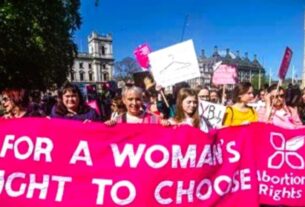A landmark UK Supreme Court decision has redefined the legal understanding of “woman” in equalities law, ruling that the term refers exclusively to a person’s sex assigned at birth. This interpretation has significant implications for transgender rights, particularly concerning access to single-sex services and protections under the Equality Act 2010.
The ruling has ignited widespread protests across the UK, with thousands of demonstrators gathering in cities including London, Edinburgh, and Manchester. Activists argue that the decision undermines the rights and dignity of transgender individuals, potentially excluding them from essential services such as healthcare, education, and public facilities.
Legal experts and human rights organizations have expressed concern, noting that the judgment could lead to increased discrimination and marginalization of transgender people. Some have indicated plans to challenge the ruling in the European Court of Human Rights, citing potential violations of international human rights standards.
In response to the protests, government officials have called for calm and dialogue, emphasizing the importance of balancing legal interpretations with the rights of all citizens. However, the situation remains tense, with ongoing debates about the implications of the ruling for transgender rights and the broader human rights landscape in the UK.




